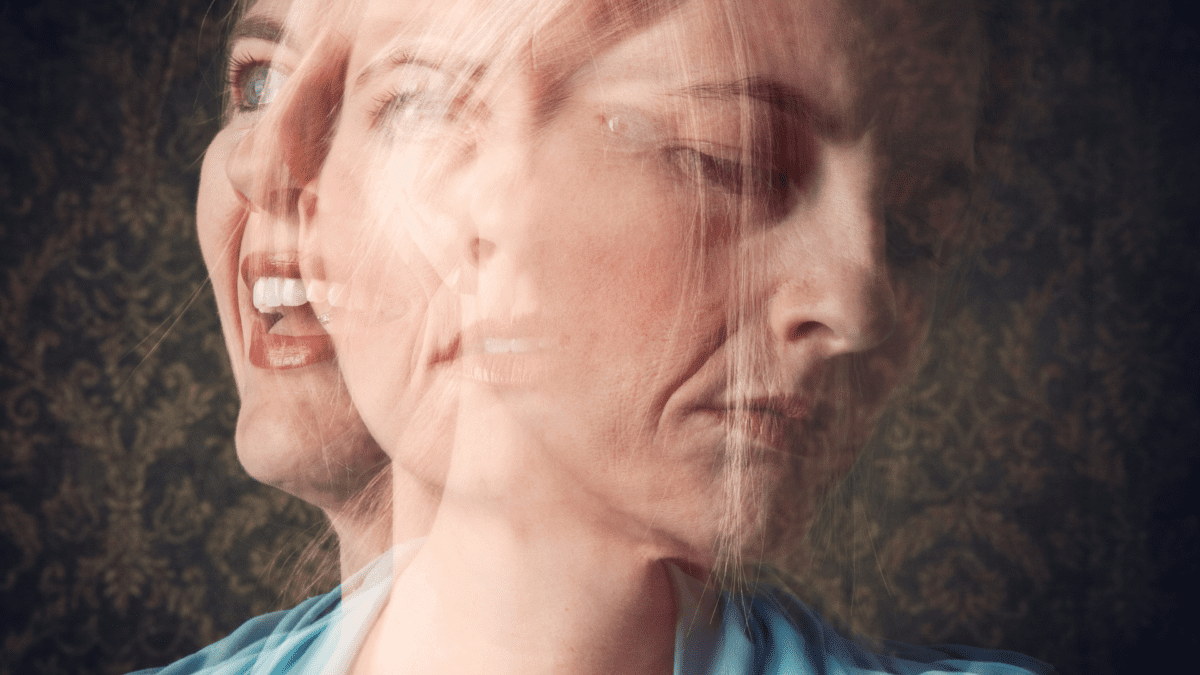
Major Depressive Disorder
August 17, 2024
OCD: What is Obsessive-Compulsive Disorder?
August 17, 2024Have you ever felt like your emotions are on a rollercoaster, going from extreme highs to lows in the blink of an eye? You may be experiencing symptoms of a mood disorder. But what exactly are mood disorders, and how do they impact our mental health?
Mood disorders are a category of mental disorders that can impact every aspect of your life, but understanding what they are is the first step toward finding relief. Join us as we explore the basics of mood disorders and discover how they can be treated at First City Mental Health Center in Kokomo, Indiana.
Types of Mood Disorders:
When it comes to mood disorders, there are several different types that can affect individuals in various ways. These include depressive disorders, bipolar and related disorders, and others. One common type is Major Depressive Disorder, which involves persistent feelings of sadness and loss of interest in activities. Another well-known disorder is Bipolar Disorder, characterized by extreme mood swings between manic highs and depressive lows.
Disruptive mood dysregulation disorder is another type of mood disorder, typically observed in children and adolescents, characterized by frequent anger outbursts and irritability.
Generalized Anxiety Disorder is a condition where individuals experience excessive anxiety and worry about everyday situations. Obsessive-Compulsive Disorder (OCD) involves recurring thoughts and behaviors that can be distressing and time-consuming. Post-Traumatic Stress Disorder (PTSD) may develop after experiencing a traumatic event, leading to flashbacks, nightmares, and severe anxiety.
Schizophrenia is a complex disorder that affects a person’s perception of reality through hallucinations or delusions. Each type of mood disorder presents its own set of challenges and symptoms for those affected.
Major Depressive Disorder
Major Depressive Disorder, commonly known as depression, is more than just feeling sad. It is a serious mental health condition that can impact every aspect of a person’s life. Symptoms may include persistent feelings of sadness, loss of interest in activities once enjoyed, changes in appetite or sleep patterns, and difficulty concentrating.
Diagnosing Major Depressive Disorder involves a thorough evaluation by a healthcare provider or mental health professional. It’s important to remember that seeking help is not a sign of weakness but rather a brave step towards better mental well-being.
Treatment for Major Depressive Disorder often includes a combination of therapy and medication tailored to the individual’s needs. Therapy such as Cognitive Behavioral Therapy can help individuals develop coping strategies and challenge negative thought patterns associated with depression.
If you or someone you know is struggling with symptoms of Major Depressive Disorder, don’t hesitate to reach out for support from professionals at First City Mental Health Center in Kokomo, Indiana.
Bipolar Disorder
Bipolar disorders are complex mental health conditions characterized by extreme mood swings. People with bipolar disorder experience periods of intense highs, known as mania or hypomania, and lows, known as depression. During manic episodes, individuals may feel elated, energetic, and impulsive. On the other hand, depressive episodes can bring about feelings of sadness, hopelessness, and fatigue.
Bipolar II disorder is a type of bipolar disorder characterized by hypomanic episodes and major depressive episodes.
It’s essential to understand that bipolar disorder is not just about mood swings; it also affects one’s energy levels, concentration, sleep patterns, and behavior. The shifts between these states can be disruptive and challenging to manage without proper treatment.
Cyclothymic disorder is another type of bipolar disorder characterized by periods of depressive symptoms and hypomania that do not meet the full criteria for bipolar disorder or major depression.
Diagnosis of bipolar disorder involves careful evaluation by mental health professionals who consider symptoms reported by the individual as well as their medical history. Treatment typically involves a combination of medication and therapy tailored to stabilize mood fluctuations and improve the overall quality of life for those living with this condition.
Some common symptoms of bipolar disorder include:
- Manic Episodes:
- Feeling excessively happy or euphoric
- Increased energy levels and restlessness
- Impulsiveness and risk-taking behavior
- Racing thoughts and difficulty concentrating
- Decreased need for sleep
- Increased sexual drive
- Engaging in reckless behaviors, such as excessive spending or substance abuse
- Depressive Episodes:
- Persistent feelings of sadness, hopelessness, and worthlessness
- Loss of interest in activities once enjoyed
- Fatigue and decreased energy levels
- Changes in appetite and weight
- Difficulty sleeping or oversleeping
- Difficulty concentrating and making decisions
- Thoughts of death or suicide
- Mixed Episodes:
Some individuals with bipolar disorder may experience both manic and depressive symptoms simultaneously or in rapid succession. This can be particularly distressing as an individual may feel excessively energetic yet sad or hopeless at the same time.
Treatment for bipolar disorder often involves a combination of medication, therapy, and lifestyle changes. Mood stabilizing medications are typically prescribed to help manage manic episodes, while antidepressants can help alleviate depressive symptoms. Therapy, such as cognitive-behavioral therapy (CBT), can also be beneficial in teaching coping strategies and managing stressors
Generalized Anxiety Disorder
Generalized Anxiety Disorder (GAD) is more than just every day worrying. It’s a persistent feeling of excessive anxiety and worry about various aspects of life, even when there’s no clear reason to be anxious. People with GAD often find it challenging to control their worries, which can interfere with daily activities and relationships.
Symptoms of GAD may include restlessness, fatigue, difficulty concentrating, irritability, muscle tension, and sleep disturbances. These symptoms can significantly impact a person’s quality of life if left untreated.
Diagnosing GAD typically involves a thorough assessment by a mental health professional who will consider the duration and intensity of the symptoms. It’s essential to seek help if you suspect you or someone you know may be struggling with GAD as early intervention can lead to better outcomes.
Treatment for GAD often involves a combination of therapy – such as cognitive-behavioral therapy (CBT) – and medications like antidepressants or anti-anxiety drugs. Seeking support from professionals at the First City Mental Health Center in Kokomo, Indiana, can make a significant difference in managing generalized anxiety disorder effectively.
Obsessive-Compulsive Disorder (OCD)
Obsessive-Compulsive Disorder (OCD) is more than just wanting things neat or clean. It’s a mental health condition characterized by intrusive thoughts and repetitive behaviors that can significantly impact daily life. People with OCD often feel compelled to perform rituals or routines to alleviate their anxiety, even if they know these actions are irrational.
From constantly checking locks to counting in specific patterns, the obsessions and compulsions of OCD can be exhausting and time-consuming. The distress caused by these thoughts and behaviors can interfere with work, relationships, and overall well-being.
Diagnosis of OCD involves a thorough evaluation by a mental health professional. Treatment options typically include therapy, such as Cognitive Behavioral Therapy (CBT), which helps individuals challenge their obsessive thoughts and learn healthier coping mechanisms.
Understanding OCD is crucial in providing empathy and support for those dealing with this challenging disorder.
Post-Traumatic Stress Disorder (PTSD)
Post-Traumatic Stress Disorder (PTSD) is a mental health condition that can develop after experiencing or witnessing a traumatic event. It’s not just feeling stressed; it’s an overwhelming sense of fear and anxiety that persists long after the trauma has ended.
People with PTSD may experience flashbacks, nightmares, and severe anxiety triggered by reminders of the traumatic event. These symptoms can significantly impact daily life and relationships, making it challenging to function normally.
It’s essential for those struggling with PTSD to seek professional help. Therapy, such as Cognitive Behavioral Therapy (CBT), can be effective in helping individuals process their trauma and develop coping mechanisms. Medications may also be prescribed to manage symptoms like depression and anxiety.
Understanding PTSD is crucial in providing support and empathy to those affected by this debilitating disorder. Compassion, patience, and access to proper treatment are key in helping individuals navigate their healing journey from PTSD.
Schizophrenia
Schizophrenia is a complex and often misunderstood mood disorder that can significantly impact an individual’s thoughts, emotions, and behaviors. People with schizophrenia may experience hallucinations, delusions, disorganized thinking, or difficulty in expressing emotions.
It is crucial to understand that individuals with schizophrenia are not necessarily violent or dangerous; they are more likely to harm themselves than others. The exact cause of schizophrenia is still unknown but is believed to be a combination of genetic, environmental, and biochemical factors.
combination of antipsychotic medications and therapy to help manage symptoms and improve quality of life. With proper treatment and support from mental health professionals, individuals living with schizophrenia can lead fulfilling lives despite the challenges they face on a daily basis.
Symptoms and Diagnosis of Mood Disorders
Mood disorders can manifest in various ways, with symptoms often affecting a person’s emotional state, behavior, and overall well-being. Individuals experiencing major depression may feel persistently sad or hopeless, lose interest in activities they once enjoyed, or have trouble sleeping.
Persistent depressive disorder is a chronic form of depression that persists for at least two years in adults, characterized by similar symptoms to major depression but often less severe.
On the other hand, those with bipolar disorder may go through extreme mood swings ranging from manic episodes of heightened energy to depressive lows. Generalized anxiety disorder can cause excessive worry and restlessness, while obsessive-compulsive disorder involves recurring thoughts and behaviors that interfere with daily life.
Seasonal affective disorder (SAD) is another type of mood disorder characterized by depressive episodes that occur at specific times of the year, typically in the winter months.
Post-traumatic stress disorder may lead to flashbacks or nightmares related to a traumatic event. Schizophrenia can affect a person’s perception of reality and disrupt their thoughts and emotions.
Diagnosing mood disorders usually involves a comprehensive evaluation by healthcare professionals, including assessing symptoms, medical history, and sometimes psychological tests. Early recognition and proper diagnosis are crucial for effective treatment planning.
Causes and Risk Factors of Mood Disorders
Mood disorders can be influenced by a variety of factors, both internal and external. Genetics plays a significant role, as individuals with a family history of mood disorders are more likely to develop them themselves. Imbalances in brain chemicals, such as neurotransmitters like serotonin and dopamine, can also contribute to the onset of these conditions.
Premenstrual dysphoric disorder (PMDD) is a mood disorder characterized by symptoms like irritability, anxiety, and depression occurring in the week prior to menstruation.
Life experiences and traumatic events can act as triggers for mood disorders. Chronic stress or major life changes can significantly impact one’s mental health. Additionally, certain medical conditions or medications may increase the risk of developing a mood disorder. Selective serotonin reuptake inhibitors (SSRIs) are commonly prescribed as a first-line treatment for depressive disorders, known for their favorable tolerance and side effects profile.
Environmental factors like exposure to toxins or substances during pregnancy can also potentially affect brain development and predispose individuals to mood disorders later in life. Severe depression is often assessed using rating scales such as the Montgomery-Asberg Depression Rating Scale (MADRS), with scores above 34 indicating severe depression.
It’s important to recognize the complex interplay between genetic predisposition, life experiences, and environmental influences when considering the causes and risk factors associated with mood disorders.






